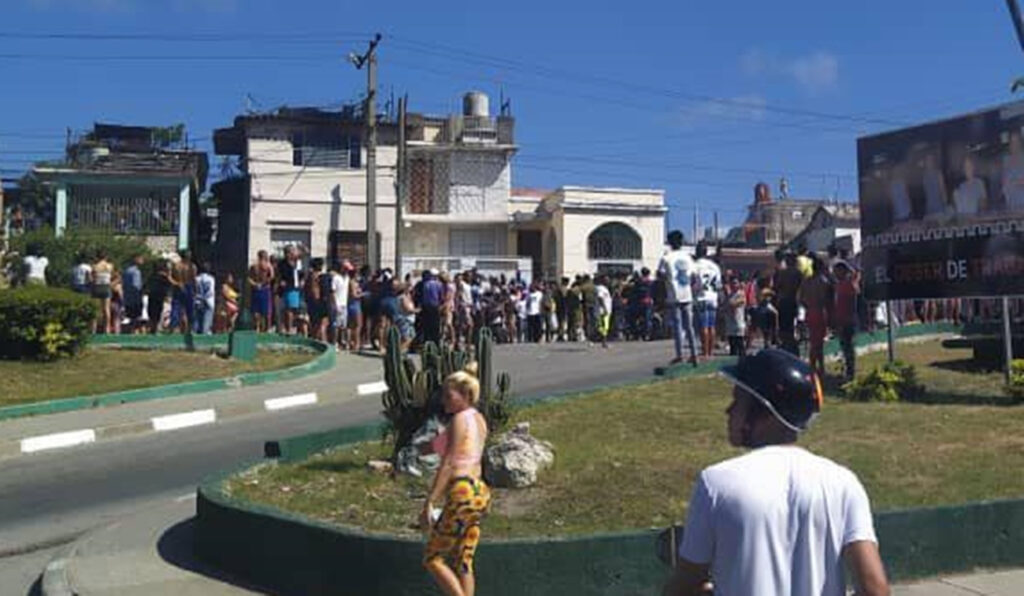The only living founders of the Dissident and Human Rights Movement in Cuba, created in 1983, make an appeal in view of the grave situation in the country on the anniversary of the 11J protests.

14ymedio, Miami, 10 July 2024 — Cuba is rapidly accelerating towards a turning point where any event could occur, including a major social catastrophe of unprecedented magnitude, before which the lynchings and looting at the end of the Machado regime could appear to us as mere childish brawls.
We are not exaggerating. On January 1, 2021, both signatories published and warned that government leadership, in what we called Conclusions from a balance sheet on Cuba at the end of 2020, that if radical changes were not made immediately, the discontent “could explode massively with serious irreparable consequences.” And yet, instead of following that advice, they made the situation even worse with measures that aggravated the already deplorable state of the people.
Then, the demonstrations of July 11 of that same year, with thousands and perhaps tens of thousands of people — if we add all the participants from the different cities of the country– were peaceful. The violence was then initiated by the repressive forces.
But now we have enough reasons to fear that this time, the protest will not only not be peaceful but, most likely, catastrophic. There is already too much suffering and resentment among the population to believe that new reforms as inefficient as those already implemented will solve the country’s serious problems. “Reform,” as the word itself indicates, means only a change in form and not in the essence of these problems.
The argument of this leadership to deny radical changes is that they would mean the end of the “revolution.” The answer to be given them, once and for all, is that this revolution has not existed for more than fifty years, if we are to use the term as defined by the Royal Spanish Academy – “profound change, generally violent, in the political and socio-economic structures of a national community”- because in 1968, when they finally ended up expropriating the people themselves in the so-called revolutionary offensive, confiscating all the small landowners, including the most humble independent workers such as shoeshine boys and hamburger sellers. There was no longer, since then, any other profound change.
So what has there been in Cuba for more than fifty years? The political and socioeconomic system that was the product of that revolution, was a totalitarian dictatorship that imprisoned or took by arms former comrades in arms who tried to prevent the betrayal of failing to fulfill the d


